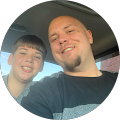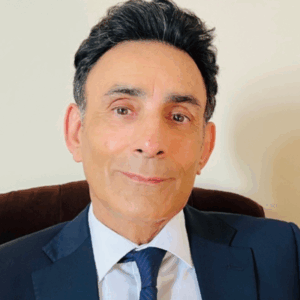

When intrusive thoughts loop nonstop and rituals steal hours from your day, it can feel like life is on pause. Our OCD treatment in Louisville, KY, offers a flexible OCD treatment program that targets both obsessions and compulsions with proven strategies.
Choose Partial Hospitalization (PHP) for all-day structure, Intensive Outpatient (IOP) for a part-time schedule, or weekly Outpatient sessions each led by clinicians certified in Exposure & Response Prevention (ERP).
If symptoms spike, we coordinate rapid transfers to inpatient stabilization and welcome you back for step-down care. One call to 502-586-2433 initiates a personalized plan to help you break the cycle and move forward.

Obsessive-compulsive disorder (OCD) is a mental health disorder that causes people to have unwanted and repeated thoughts, feelings, ideas, sensations (obsessions), or behaviors that make them feel driven to do something over and over again (compulsions). In Louisville, OCD treatment is available to treat compulsive behaviors and other OCD symptoms.
People who have OCD may feel they need to perform certain rituals or routines over and over again to prevent harm to themselves or others. They may also feel they need to check things repeatedly. For example, they may need to check the stove 10 times before leaving the house because they fear they left it on.
These thoughts, feelings, ideas, sensations, and behaviors are called obsessions. People with OCD get them in their minds and can not get them out of their minds, no matter how hard they try. They become so strong people with OCD know these thoughts are not real but still can not stop having them.
The compulsions are behaviors performed in response to an obsession to relieve stress caused by the obsession. Compulsions are often done as a way to prevent bad things from happening. For example, when someone is obsessed with being dirty or contaminated by germs, they may wash their hands repeatedly or several times.
This can happen even to the point of injury. People with OCD may spend hours daily performing compulsions such as cleaning, washing, counting, tapping, putting things in order, or arranging things until it “feels right.” to them.
Obsessive Compulsive Disorder (OCD) is marked by distressing thoughts (obsessions) and repetitive actions (compulsions) performed to reduce anxiety. Effective OCD Treatment combines medication, typically high-dose SSRIs or, in some cases, atypical antipsychotics, with gold-standard Exposure & Response Prevention (ERP).
At our center, ERP sessions are delivered in an outpatient format, allowing you to practice resisting rituals in real-world settings and process wins or setbacks the following day. Therapy rooms include “trigger stations” that simulate common fears, contamination, checking, and symmetry while clinicians coach you through the urge to ritualize.
Weekly medication reviews ensure side effects are minimal and serotonin levels remain optimal. Together, these elements create a dynamic plan that chips away at OCD’s grip while letting you stay rooted in daily life, exactly what OCD treatment in Louisville, KY, is designed to do.
An accredited OCD treatment center offers a range of support beyond a typical therapy office. You’ll meet regularly with a psychiatrist for dose optimization, nurses who track sleep, blood pressure, and weight, and ERP-certified therapists who guide individualized OCD Therapy sessions.
Digital symptom-tracking tools flag spikes between visits, enabling immediate adjustments to the plan. Family education groups teach loved ones to stop “accommodating” rituals, an evidence-based step that speeds progress.
Care coordinators handle insurance authorizations and schedule follow-ups so administrative stress never fuels obsessions.
By integrating medical oversight, specialized OCD therapy, and practical life coaching, the center builds a comprehensive roadmap from first exposure exercise to long-term maintenance, giving you the confidence to reclaim routines once ruled by compulsions.
Obsessive-compulsive disorder (OCD) is an anxiety disorder characterized by obsessive thoughts and compulsive actions or rituals. The symptoms can be mild or severe and can cause significant impairment in a person’s life.
According to the International OCD Foundation, the most common signs of obsessions and compulsions include:
The above-mentioned symptoms can make leading a fulfilling and healthy life challenging. In extreme cases of OCD, people struggle to fulfill their daily responsibilities because they cannot move on from their obsessive thoughts or compulsive behaviors.
Our Louisville OCD clinic helps clients find healthy coping mechanisms to manage obsessions and compulsions.




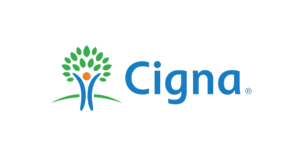



OCD varies from person to person, and many psychiatrists believe it can be categorized into five subtypes of obsessive-compulsive behavior. Individuals often experience symptoms from several of the categories, which can change over time. Our OCD treatment in Louisville involves a personalized approach that addresses the specific symptoms and challenges associated with each subtype.
Organization is one of the most common types when individuals think of OCD. This boils down to an obsession with needing everything to be in its right place or symmetrical. This could look like wanting all labels facing in the same direction or keeping their room clean at all times.
If an individual cannot accomplish this, it might leave them with feelings of distress. They can believe that harm can happen to themselves or loved ones due to the lack of organization.
This type has two parts. The first is the thought that the people around them can spread illnesses through touch or proximity. The second is that things, thoughts, or even words can “contaminate” a person. A person might see an individual with this type washing their hands frequently or cleaning objects more.
These activities prevent the spread of this perceived contamination. Due to this fear, individuals might become isolated and avoid certain places, things, and people.
Individuals who experience intrusive thoughts are having distressing ideas enter their minds at seemingly random times. These thoughts can range from causing pain to a loved one or a stranger.
Some believe thinking about something for too long will increase the likelihood of it happening. To help them silence their thoughts, they might see or hear them do a certain action or say something out loud.
This type is similar to intrusive thoughts but these thoughts often feel interesting or even indulgent. Rumination can cause an individual to spend a lot of time thinking, worrying, and overanalyzing specific thoughts or actions.
This can still be distressing to an individual since they will repeat this thought or try to solve a problem. This can include worrying about future events, replaying past scenarios, or trying to predict how an event will play out.
Checking is another common type of OCD. This is an obsession in which an individual worries about causing harm due to being careless. Checking might look like making sure the door is locked or that the burners on their stoves are turned off. They might do this multiple times to help them feel more at ease.
OCD (Obsessive-Compulsive Disorder) can worsen due to various factors. For example, one might ask, can trauma cause OCD or make it get worse? Another often-asked question is, can OCD be inherited from a family member? Here are some common factors that may cause OCD symptoms to intensify.
Obsessive-Compulsive Disorder and depression are often interconnected, with individuals experiencing symptoms of both conditions simultaneously. OCD is characterized by intrusive thoughts (obsessions) and repetitive behaviors or mental acts (compulsions), while depression involves persistent feelings of sadness, hopelessness, and a loss of interest or pleasure in activities.
The relationship between OCD and depression can be complex and bidirectional. Some individuals with OCD may experience depressive symptoms as a result of the distress and impairment caused by their obsessions and compulsions. Conversely, individuals with depression may develop obsessive thoughts or engage in compulsive behaviors as a way to cope with their feelings of sadness and despair.
At our OCD treatment center, dual diagnosis treatment often requires a comprehensive approach that addresses the unique symptoms and challenges of each condition. This may include a combination of therapy, medication, and lifestyle changes tailored to the individual’s specific needs. Cognitive-behavioral therapy (CBT), particularly Exposure and Response Prevention (ERP) for OCD and cognitive restructuring for depression, is often effective in treating both conditions. Medications such as selective serotonin reuptake inhibitors (SSRIs) may also be prescribed to alleviate symptoms.
It’s important for individuals experiencing symptoms of both OCD and depression to seek help from a mental health professional who can provide an accurate diagnosis and develop a personalized treatment plan. With appropriate OCD and depression treatment, individuals with both OCD and depression can learn to manage their symptoms and improve their overall quality of life.
| Core Approach | Role in Obsessive Compulsive Disorder (OCD) Therapy |
|---|---|
| Exposure & Response Prevention (ERP) | Gold-standard OCD Therapy that gradually exposes you to triggers while blocking rituals, retraining the brain’s alarm system. |
| Acceptance & Commitment Therapy (ACT) | Teaches you to allow anxious thoughts without acting on them, then pivot toward value-based action. |
| Mindfulness & Breathwork | Lowers autonomic arousal, so obsessions lose their urgency. |
| Medication Management | On-site psychiatrist adjusts high-dose SSRIs or augments with atypical antipsychotics when needed. |
| Family Therapy | Coaches loved ones to stop “accommodating” compulsions and set supportive boundaries. |
| Addiction-Focused Services (MAT, Relapse-Prevention) | For co-occurring substance misuse, it integrates craving control so alcohol or drugs don’t replace rituals. |
These tools are woven into every PHP, IOP, and OP track, letting your OCD therapy evolve as symptoms improve while ensuring exposure practice, medication, and family support move in lockstep.
Yes. When compulsions trigger self-harm risk, nonstop rituals cause dehydration or infection, or intrusive thoughts edge toward psychosis, our clinical team arranges rapid transfer to a partner hospital for round-the-clock inpatient OCD stabilization. We handle transportation records in advance and serve as your primary contact point for hospital staff to deliver intensive care, including IV medication, nutritional support as needed, and 24/7 monitoring.
Average stays last 5–10 days, long enough for patients to regain sleep, hydration, and medication adherence. Discharge planning happens from day one.
Once the acute danger has passed, you transition back into ERP labs, medication reviews, and family coaching within our outpatient program, creating a seamless bridge from crisis to long-term resilience.
Expect a clear routine. The PHP OCD treatment program meets five days a week for 25–30 hours total. Mornings open with mindfulness or light cardio to dial down baseline anxiety, followed by ERP “lab” blocks where you face triggers, door handles, stovetop knobs, and intrusive images under therapist guidance.
Twice-weekly individual sessions focus on cognitive restructuring and include home exposures.
After lunch, medication check-ins ensure SSRIs stay therapeutic, and afternoon skills groups cover ACT, emotion regulation, and relapse-prevention for any co-occurring substance use. Evening family workshops run once a week.
Stepping into IOP reduces the load to 9–15 hours across three to five days; you’ll still attend at least one ERP lab, one individual session, and a peer support circle each week, providing plenty of structure while being flexible enough for work or school.
Most intensive OCD treatment programs run about six weeks in PHP, a span long enough to complete 15–20 supervised ERP sessions and stabilize meds. Clients then shift into IOP for eight to twelve weeks, where exposures move into real-world settings (grocery stores, highways, public restrooms) while therapist check-ins taper.
After IOP, alumni groups meet monthly for booster ERP practice and accountability, and your psychiatrist oversees long-term medication maintenance every six to eight weeks. Some people opt for periodic “tune-up” sessions, light treatment programs for OCD lasting a week or two whenever life stressors spike.
Duration is always adjusted to match symptom severity, response speed, and personal goals, ensuring care is both thorough and personalized.
Finances shouldn’t fuel obsessions. Our admissions team offers free, confidential insurance verification for OCD Treatment in Louisville, KY, typically within an hour. We accept Anthem Blue Cross Blue Shield, Aetna, Cigna, Humana, UnitedHealthcare, and most PPO plans. We’ll outline deductibles and copays for you to start.
If coverage is limited, ask about sliding-scale fees or zero-interest payment plans so cost never derails recovery.
Speed matters when rituals rule your day. One phone call triggers a same-day clinical assessment, and a virtual intake packet enables you to enroll from the comfort of your own home.
If your symptoms require 24/7 monitoring, we’ll arrange transport to a partner hospital for immediate care; otherwise, Obsessive Compulsive Disorder (OCD) Therapy in PHP or IOP can begin as early as tomorrow, complete with your first ERP session and medication review on the calendar.
Obsessive-Compulsive Disorder (OCD) is a mental health condition characterized by recurring, intrusive thoughts and repetitive behaviors. The intrusive thoughts, known as obsessions, often cause significant anxiety or distress. These thoughts may involve fears of contamination, harm, symmetry, or unwanted impulses that feel difficult to control.
In response to these obsessions, individuals may engage in compulsions. Compulsions are repetitive behaviors or mental acts performed in an attempt to reduce anxiety or prevent something bad from happening. Examples include excessive cleaning, checking, counting, arranging, or repeating certain phrases silently.
OCD can interfere with work, school, relationships, and daily routines. Even when someone recognizes that their thoughts or behaviors are irrational, they may feel unable to stop without experiencing intense discomfort. With proper treatment and support, individuals can learn effective ways to manage symptoms and regain control over their lives.
OCD symptoms generally fall into two categories: obsessions and compulsions. Obsessions are persistent, unwanted thoughts, urges, or images that cause anxiety. These may include fears of germs, concerns about safety, intrusive violent or sexual thoughts, or an overwhelming need for order and symmetry.
Compulsions are repetitive behaviors performed in response to obsessive thoughts. Common compulsions include frequent handwashing, repeated checking of locks or appliances, arranging items in a precise way, counting rituals, or seeking reassurance from others. Some compulsions are mental rather than physical, such as silently repeating words or reviewing events in the mind.
Symptoms can vary in severity. For some individuals, OCD consumes several hours a day and significantly disrupts normal functioning. For others, symptoms may be less frequent but still distressing. When these patterns begin to interfere with quality of life, professional treatment can provide meaningful relief.
OCD treatment typically involves evidence-based therapeutic approaches designed to reduce both obsessions and compulsions. One of the most effective therapies is Exposure and Response Prevention (ERP), a specialized form of cognitive behavioral therapy. ERP helps individuals gradually face their fears while resisting the urge to perform compulsive behaviors.
Structured treatment options may include different levels of care depending on symptom severity. These can range from outpatient therapy sessions to more intensive programs that provide several hours of therapy per day. Each level of care is designed to provide consistent support while helping individuals practice coping skills in real-life situations.
Medication management may also be incorporated into treatment plans when appropriate. Combining therapy with medication can enhance symptom relief and improve overall outcomes. A personalized plan ensures that treatment addresses each individual’s unique experiences and goals.
Exposure and Response Prevention (ERP) is a specialized therapy considered a gold standard for OCD treatment. It involves gradually exposing individuals to situations, thoughts, or objects that trigger anxiety while preventing the usual compulsive response.
For example, someone who fears contamination may practice touching everyday objects without immediately washing their hands. With professional guidance, these exposures are structured and progressive, beginning with less distressing triggers and building toward more challenging ones.
Over time, the brain learns that anxiety naturally decreases without performing the ritual. This process weakens the cycle between obsession and compulsion. ERP requires commitment and consistency, but it can significantly reduce symptom severity and help individuals regain confidence in managing their fears.
OCD often occurs with other mental health conditions such as anxiety disorders, depression, or trauma-related disorders. In some cases, individuals may also struggle with substance use as a way of coping with overwhelming thoughts or anxiety.
When multiple conditions are present, integrated treatment is essential. Addressing OCD without treating co-occurring issues may limit progress. Comprehensive care evaluates the full scope of symptoms and creates a coordinated plan that supports both mental health and recovery needs.
By treating all underlying concerns together, individuals can build stronger coping skills and reduce the risk of relapse. This approach improves long-term stability and supports overall emotional well-being.
The length of OCD treatment depends on several factors, including the severity of symptoms and the level of care required. Some individuals benefit from short-term intensive programs that provide daily therapeutic support. Others may participate in ongoing outpatient therapy over a longer period.
Progress is typically gradual. Early improvements often include increased awareness of triggers and the ability to delay or reduce compulsive behaviors. Over time, individuals may notice decreased anxiety and improved ability to function in daily life.
Treatment focuses on building sustainable coping strategies rather than eliminating every intrusive thought. With consistent participation and support, many people experience meaningful and lasting improvement.
Beginning treatment usually starts with a comprehensive assessment. This evaluation helps determine the severity of symptoms, identify triggers, and explore any co-occurring conditions. Based on this information, a personalized treatment plan is developed.
Early sessions often focus on education about OCD and how the cycle of obsessions and compulsions works. Individuals learn practical coping tools and begin structured therapeutic exercises such as ERP.
Treatment is collaborative and goal-oriented. Clients are encouraged to actively participate in sessions and practice skills outside of therapy. Over time, this structured support builds confidence and promotes greater independence in managing symptoms.
Family involvement can play an important role in recovery. Loved ones often want to help, but without guidance, they may unintentionally reinforce compulsive behaviors by providing reassurance or accommodating rituals.
Education helps families understand how OCD functions and how to respond in supportive but healthy ways. Setting appropriate boundaries while offering encouragement creates a balanced environment for progress.
Family therapy or educational sessions may be included in treatment to strengthen communication and provide practical tools. When support systems are informed and involved, individuals with OCD often feel more empowered and less isolated during their recovery journey.
Obsessive-Compulsive Disorder (OCD) can create intrusive thoughts and repetitive behaviors that feel impossible to ignore. These cycles can consume time, increase anxiety, and disrupt daily functioning. Louisville Addiction Center provides structured OCD treatment in Louisville, Kentucky, including care for individuals experiencing co-occurring substance use disorders.
Our clinical approach includes psychiatric evaluation, medication management when appropriate, and evidence-based therapy designed to reduce compulsive behaviors and obsessive thought patterns. When addiction is present, integrated dual diagnosis treatment addresses both conditions simultaneously to improve long-term stability.
OCD is highly treatable with the right support. You do not have to continue managing intrusive thoughts alone.
If OCD symptoms are affecting your quality of life or contributing to substance misuse, early intervention can significantly improve outcomes.
Contact Louisville Addiction Center today for confidential admissions support and immediate insurance verification. Effective treatment — and relief — can begin now.
We focus on measurable milestones rather than individual anecdotes. Within the first few weeks of care, most clients can delay or shorten compulsions during supervised ERP sessions, an early sign that the brain is relearning how to handle anxiety without rituals.
As treatment continues, tracking apps and therapist check-ins show a steady drop in daily obsession time and a rise in “compulsion-free” intervals.
By program discharge, many clients report sleeping through the night, returning to work or school without repeated checking, and spending far less mental energy on intrusive thoughts.
Alumni surveys taken six months later reveal that the majority still practice ERP techniques, attend periodic booster sessions, and rate their symptom control as “good” or “excellent.” These data-driven outcomes illustrate how consistent OCD therapy, medication management, and family education translate into lasting relief.
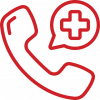
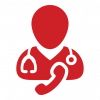
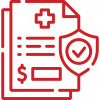
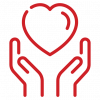


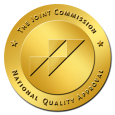






The content available on Louisville Addiction Center pages is designed to provide educational information related to addiction, detoxification, rehabilitation, and recovery. This information should not be interpreted as professional medical advice or treatment recommendations.
Addiction treatment is highly individualized. Detox and rehab needs vary significantly based on health history, substance use patterns, and mental health considerations. Information provided is general and may not apply to all individuals.
If an emergency arises — such as overdose, severe withdrawal symptoms, or immediate danger — call 911 without delay. Online resources are not a substitute for emergency medical care.
Medical detox should always be conducted under professional supervision. Attempting detox without medical oversight can be dangerous.
Insurance information is provided as general guidance only. Coverage varies by plan and carrier. Louisville Addiction Center encourages all individuals to verify benefits directly with admissions staff.
Recovery outcomes are not guaranteed. Treatment effectiveness depends on many factors including engagement, clinical needs, and aftercare support.
References to external resources do not imply endorsement. Louisville Addiction Center is not responsible for third-party content.
Website use does not establish a provider-patient relationship.
All content published on Louisville Addiction Center website pages is provided for informational purposes only and should not be interpreted as medical, psychological, or legal advice. This information is not intended to diagnose, treat, cure, or prevent any disease or condition and should not replace consultation with licensed healthcare professionals.
Addiction is a chronic, relapsing medical condition that requires individualized care. Treatment approaches, detox protocols, and rehabilitation services vary depending on numerous factors unique to each individual. No information on this website should be relied upon to make treatment decisions without professional guidance.
If you are experiencing an emergency situation, including overdose, withdrawal complications, suicidal ideation, or immediate risk to yourself or others, call 911 immediately. Louisville Addiction Center does not provide emergency medical services online or via website communication.
Never attempt to discontinue substance use or begin detox without proper medical supervision. Withdrawal can cause serious medical complications. Any information regarding detoxification is general in nature and does not substitute for physician-directed care.
Insurance information presented on this website is intended solely to assist users in understanding potential coverage options. Coverage is subject to verification, medical necessity determinations, and policy limitations. Louisville Addiction Center encourages direct contact with our admissions specialists to confirm benefits and eligibility.
We do not guarantee treatment outcomes, length of stay, insurance approvals, or placement availability. Outcomes depend on numerous clinical and personal factors.
External links are provided for convenience and informational purposes only. Louisville Addiction Center assumes no responsibility for third-party content or practices.
Use of this website does not establish a doctor-patient or therapist-patient relationship. Recovery requires professional support and individualized care.
American Psychological Association. (2024). Obsessive compulsive disorder. https://www.apa.org/topics/ocd Anxiety Institute+15American Psychological Association+15Psychiatry Online+15
American Psychiatric Association. (2017). Practice guideline for the treatment of patients with obsessive-compulsive disorder. In APA clinical practice guidelines. MedscapePsychiatry Online
Anxiety and Depression Association of America. (n.d.). Practice guidelines for treating OCD in children and adults recommend first-line treatments: CBT with ERP, pharmacotherapy with SRIs, or their combination. ADAA
Drummond, L. M. (2021). Cognitive behavioural therapy with exposure and response prevention in the treatment of obsessive-compulsive disorder: A systematic review and meta-analysis of randomized controlled trials. Comprehensive Psychiatry. https://doi.org/10.1016/J.COMPPSYCH.2021.152223 Academia
Reid et al. (2021). Cognitive behavioural therapy with exposure and response prevention in the treatment of OCD: Updated meta-analysis on ERP protocols versus control. UCL DiscoveryScienceDirect
Massachusetts General Hospital (2020). Cognitive behavioral therapy for OCD: CBT + ERP, SRIs, and mindfulness in clinical application. MGH CME
Yildirim, K. (2022, October 25). What Is Exposure and Response Prevention? Verywell Health. https://www.verywellhealth.com/exposure-and-response-prevention-5270826 Verywell Health
National Institute of Mental Health. (n.d.). Obsessive-compulsive disorder (OCD): Treatment options and research. U.S. Department of Health and Human Services, National Institutes of Health. https://www.nimh.nih.gov/health/topics/obsessive-compulsive-disorder-ocd National Institute of Mental Health









Hear directly from those who have walked the path to recovery. Our patients’ stories highlight the compassionate care, effective programs, and life-changing support they’ve experienced. Let their journeys inspire you as you take your first steps toward healing.

Get Family Support Now
We understand addiction affects the whole family. Our comprehensive family program helps rebuild trust and restore relationships.
Weekly Family Therapy Sessions
Educational Workshops
Support Groups
Communication Skills Training


Louisville Addiction Center is helping people in Kentucky overcome addiction and mental health challenges.









